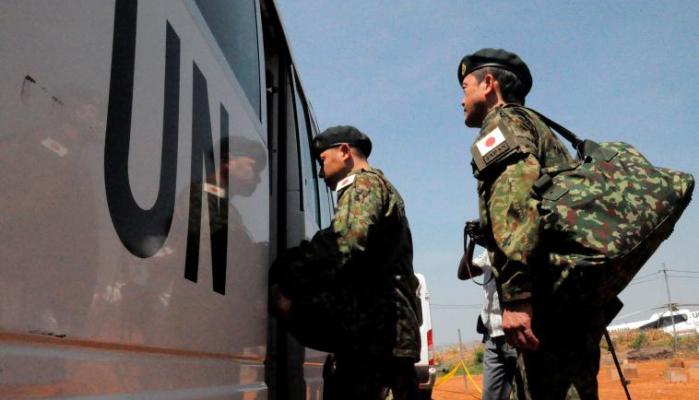South Sudanese soldiers warned against agression

December 10, 2016 (JUBA) – The chief of South Sudan army (SPLA), Paul Malong Awan has warned government soldiers not to be aggressive towards foreign troops coming to compliment and strengthen the protecting and fighting capacity of the forces under the new mandate of United Nations Mission in South Sudan UNMISS).
Speaking to soldiers during a parade at the army’s general headquarters on Friday, Awan said he received orders from the president, also commander in-chief of the army, instructing the SPLA to respect foreign forces and protect civilians during their engagements with armed opposition forces in the country.
“Civilians are not our targets. We are the government. Our mandate is to protect the constitution and territorial integrity of the country against foreign forces and for those who wants to undermine the sovereignty of the country, whether those wanting to do this comes from within or outside”, Awan told the state-owned SSBC.
The top level military officer urged the command and military officers to cooperate with the forth coming foreign troops, saying they were not their immediate enemies, but coming to supplement efforts to ensure stability.
Awan’s remarks came in the wake of a statement attributed to Japan’s Defense Minister Tomomi Inada, in which she said Japanese forces were deployed to the country under Self-Defense Force (SDF) and could be withdrawn if security conditions deteriorate.
“The situation could abruptly change so we will consistently gather necessary information for ensuring safety,” Inada said in a recent media interview with various news outlets. Her comments come ahead of Monday, when the SDF personnel stationed in the new country begin operating under expanded guidelines that allow them to respond to requests by U.N. staff and others in need of assistance, such as if they come under attack.
Inada said she is “not concerned” about the new mission, which is in line with the nation’s new security legislation that gives SDF personnel greater operational leeway.
The SDF troops “are well trained” and the officer commanding the unit in South Sudan “is a person who can assess the situation calmly,” the minister added.
More than 270 people died in Juba in July due to large-scale clashes between government forces and rebels. While admitting that the overall security situation in South Sudan is tough, the Japanese government has said Juba is relatively calm.
“If gun battles last longer than the (July) fighting, and the SDF cannot secure their own safety, it is possible that we would consider their withdrawal,” Inada said.
The new role legally includes operations to rescue foreign military personnel, but Inada said such a scenario “is not expected to arise. Foreign troops can protect themselves.”
The rescue mission remains controversial at home, with some critics warning that the new role could lead SDF members to become embroiled in overseas military actions for the first time since World War II, in possible violation of the country’s war-renouncing Constitution.
(ST)
